Your Culture is not Good Enough – Confession of an arrogant urban planner
Aparna Das reflects on the complexity of Kolkata’s culture and built environment
A Curious Biography of Power Looms in the Aftermath of U.S. Deindustrialization
Yuan Yi uses the case of Orinoka Mills to explore the impacts of American textile closures
Deindustrialization and the Calumet Region
Joseph Coates and Emiliano Aguilar discuss the work done to preserve the memory of ACME workers in the Calumet region after the company’s coking plant closure.
Social Reproduction and Scandal in Netflix’s Toxic Town
Amber Ward reviews Netflix’s Toxic Town, a depiction of women’s response to the continued exploitation of residents in a deindustrialized English town.
Boss Narratives: Regeneration and Heritage in Marysville, New Brunswick, Canada.
Noah Schwartz discusses the whitewashing that occurs in many cases of historical preservation of gentrifying deindustrialized neighbourhoods, using the example of Marysville, New Brunswick
Proletarian (green) publics in transformation: Perspectives from the Ruhr (Part 2)
Nearly 150 researchers and students are currently affiliated with the DePOT project. Historians and sociologists abound. Yet there are only a few scholars trained in planning or geography.
As urban planning scholars based in Detroit—specializing in community development and economic development respectively—we have affiliated with the DePOT project because studying deindustrialization challenges us to reconsider one of the foundational relationships structuring the built environment: the linkage between jobs and communities. Specifically, deindustrialization draws our attention to the decisive role that industry has long played in creating—and subsequently remaking—neighborhoods, cities, and metropolitan areas.
Proletarian (green) publics in transformation: Perspectives from the Ruhr (Part 1)
Nearly 150 researchers and students are currently affiliated with the DePOT project. Historians and sociologists abound. Yet there are only a few scholars trained in planning or geography.
As urban planning scholars based in Detroit—specializing in community development and economic development respectively—we have affiliated with the DePOT project because studying deindustrialization challenges us to reconsider one of the foundational relationships structuring the built environment: the linkage between jobs and communities. Specifically, deindustrialization draws our attention to the decisive role that industry has long played in creating—and subsequently remaking—neighborhoods, cities, and metropolitan areas.
Comparing Deindustrialization in Detroit and Windsor
Nearly 150 researchers and students are currently affiliated with the DePOT project. Historians and sociologists abound. Yet there are only a few scholars trained in planning or geography.
As urban planning scholars based in Detroit—specializing in community development and economic development respectively—we have affiliated with the DePOT project because studying deindustrialization challenges us to reconsider one of the foundational relationships structuring the built environment: the linkage between jobs and communities. Specifically, deindustrialization draws our attention to the decisive role that industry has long played in creating—and subsequently remaking—neighborhoods, cities, and metropolitan areas.
The Deindustrialization of DC
Between January and May this year, more than 260,000 U.S. federal government workers have either been laid off, taken early retirement, or accepted buyouts. Thousands more are losing jobs as the Trump administration slashes research grants and funding for social services and non-profits. While the cuts affect people across the country and the world, they hit especially hard in Washington, D.C., where the federal government has always been the largest employer. As the Axios news service put it, the Trump administration is “downsiz[ing] the capital city’s big factory.”
DePOT MA Fellowships at Concordia 2025-2026
There are three fellowships available for incoming MA students at Concordia interested in studying deindustrialization.
Each fellowship is $24,000 CAD over 2 years, and can be combined with other internal or external funding. Two of the fellowships are to work with Dr. Steven High, with an open topic and geographical focus, but proposals related to the labour movement and environment and deindustrialization are encouraged.
The remaining fellowship is to work with Dr. Yuan Yi on any aspect of deindustrialization studies in China.
The deadline for fellowship applications is November 1 2024, with students starting their course in September 2025.
New co-edited volume from DePOT affiliate María Esperanza Rock Núñez
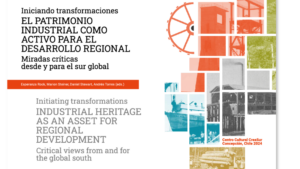
Iniciando transformaciones: El patrimonio industrial como activo para el desarrollo regional. Miradas críticas desde y para el Sur global / Initiating Transformations Industrial Heritage as an Asset for Regional Development. Critical views from and for the global south
eds. María Esperanza Rock Núñez, Marion Steiner, Daniel Stewart & Andrés Torres González
Congratulations to DéPOT affiliate María Esperanza Rock Núñez and her co-editors on this new edited volume on industrial heritage in the Global South. The book, available in English and Spanish, can be downloaded here.
Here is a note from Esperanza on the book:
“The book titled Initiating Transformations Industrial Heritage as an Asset for Regional Development. Critical views from and for the global south offers a critical, interdisciplinary, and international perspective on the subject. This volume, imbued with a forward-looking vision, promotes collaboration and operationalizes respect through the recognition of differences.
Thanks to the collaboration between the Centro Cultural CREASUR (Chile) and the Núcleo de Investigación del Sur (NUDISUR), along with a prominent international network of partnerships such as TICCIH International and the financial support of the Government of the Biobío Region (Chile), a program was launched in 2023 that brought together the public sector, academia, regional artistic spheres, and communities to engage with the industrial heritage of the Biobío region, Chile.
The program assembled over 70 experts from around the world (including Indonesia, Egypt, Nigeria, India, Nepal, Brazil, Mexico, Chile, Argentina, Uruguay, Cuba, Venezuela, Germany, France, Spain, and the United States) in Concepción, Chile, from October 16 to 20, 2023. Together, they reflected on diverse realities and discussed strategies for transforming industrial heritage from and for the Global South.
The event was complemented by the Arts in Ruins Festival and a training program in Collaborative Methodologies for Heritage Projects with a Critical Approach, sponsored by OTEC Cultura y Territorio (www.culturayterritorio.cl) and the Master’s Program in Architectural Heritage Intervention at the University of Chile.
The book is structured into four main chapters. The first chapter provides an introduction to the working method and emphasizes the importance of collaboration and networking. The second chapter documents the experiences and reflections from the “IV International and Interdisciplinary Cultural Heritage Congress on Industrial Heritage, Social Issues and Challenges for New Governance.” The third chapter features aspects of the Arts in Ruins Festival, highlighting how this artistic celebration enriched the congress and showcased the intangible heritage related to industrial heritage and its artistic narratives.
Finally, the fourth chapter addresses training in Collaborative Methodologies for Heritage Projects with a Critical Approach, offering valuable tools and perspectives for public administrators, cultural managers, and professionals from both the public and private sectors for effective heritage management.”
Version Español :
El libro titulado Iniciando transformaciones: El patrimonio industrial como activo para el desarrollo regional. Miradas críticas desde y para el sur global ofrece una perspectiva crítica, interdisciplinaria e internacional sobre el tema. Este volumen, impregnado de una visión de futuro, fomenta la colaboración y operacionaliza el respeto a través del reconocimiento de las diferencias.
Gracias a la colaboración entre el Centro Cultural CREASUR (Chile) y el Núcleo de Investigación del Sur (NUDISUR), junto con una destacada red internacional de alianzas, como TICCIH Internacional, y el financiamiento del Gobierno Regional del Biobío (Chile), en el año 2023 se llevó a cabo un programa que unió al sector público, la academia, las esferas artísticas regionales y las comunidades para activarse en torno al patrimonio industrial de la región del Biobío, Chile.
Este programa reunió a más de 70 expertos de todo el mundo (incluyendo Indonesia, Egipto, Nigeria, India, Nepal, Brasil, México, Chile, Argentina, Uruguay, Cuba, Venezuela, Alemania, Francia, España y Estados Unidos) en Concepción, Chile, entre el 16 al 20 de octubre 2023. En conjunto reflexionamos sobre las diversas realidades y luego se reflexionó sobre estrategias de transformación del patrimonio industrial desde y para el sur global.
El evento se complementó con el Festival de Artes en Ruinas y una significativa formación en Metodologías Colaborativas para Proyectos Patrimoniales con un Enfoque Crítico, patrocinada por OTEC Cultura y Territorio (www.culturayterritorio.cl) y el Magíster en Intervención del Patrimonio Arquitectónico de la Universidad de Chile.
El libro está estructurado en cuatro capítulos principales. El primer capítulo ofrece una introducción al método de trabajo y subraya la importancia de la colaboración y el trabajo en red. El segundo capítulo documenta las experiencias y reflexiones surgidas durante el “IV Congreso de Patrimonio Cultural Internacional e Interdisciplinario sobre Patrimonio Industrial, Cuestión Social y Desafíos para la Nueva Gobernanza”. El tercer capítulo presenta una parte del Festival de Artes en Ruinas, destacando cómo esta celebración artística enriqueció el congreso y puso en valor el patrimonio inmaterial relacionado con el patrimonio industrial y sus narrativas artísticas.
Finalmente, el cuarto capítulo aborda la formación en Metodologías Colaborativas para Proyectos Patrimoniales con Enfoque Crítico, proporcionando herramientas y perspectivas valiosas para administradores públicos, gestores culturales y profesionales del ámbito público y privado para una gestión efectiva del patrimonio.
New Annotated Bibliography on Deindustrialization in Africa
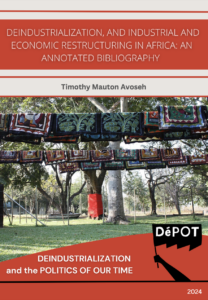
This spring, Concordia MA student and DePOT RA Mauton Avoseh has been working on an annotated bibliography on deindustrialization studies in Africa which is now available on our website!
Mauton is a master’s student in the Department of History at Concordia University. Born and raised in Lagos, Nigeria, he completed his undergraduate degree at Lagos State University, Nigeria, where he studied History and International Studies. Thematically, he is interested in urban history and African history. His research activities revolve around how colonialism shaped the trajectory of African cities and how it informed urban planning, culture, and intergroup relations in the urban space. Additionally, he loves reading about Afrobeats, African music, informal cross-border trades, transnational identity, contemporary African politics, and the politics of climate change.
Register for our Pre-conference Walking Tours and Film Screening
Our local partners have arranged pre-conference activities to give attendees a sense of Glasgow’s industrial and deindustrial history on June 24. We are offering three different walking tours and a screening at the National Library of Scotland’s Moving Image Archive.
Please register for your preferred activity as space is limited, particularly for the walking tours! If you have any questions, please reach out at deindustrialization@concordia.ca.
- Glasgow’s Shipbuilding Heritage, Fairfield Govan
Start time: 2.30 (finishing around 4.30pm; or 5.30pm for those taking the option of walking back to the city along the river)
Location: Fairfield Heritage Centre, Govan
Description: This visit will take us to Govan, one of the main shipbuilding communities on the Clyde and to the Fairfield Heritage Centre which is located in the old Victorian headquarters of one of the major shipbuilding companies on the river. Along the route we will pass the Mary Barbour statue – one of the few physical memorials to a female ‘Red Clydeside’ activist in the city. At the Fairfield Heritage Centre we will get a sense of the importance of the shipbuilding industry as well as its demise, as deindustrialisation deepened and yards closed. The museum story covers the occupational hazards of working in the yards, the pride the men had in their work, something of the prevailing workplace culture and the ‘hard man’ masculinity that prevailed, the powerful trade unions and the resistance to yard closures and job losses. We have the use of the Victorian shipyard boardroom at the end of the visit where we can listen to some extracts from oral histories of shipyard workers talking about their work and what losing their work meant to them, their families and their community. Weather permitting, participants can decide on a long walking route back to the city along the river (around 2.5 miles / one hour +), passing dock areas, including the Graving Dock and the preserved Finneston Crane, or returning to the city on the subway from Govan Cross.
Getting there: The easiest transport option is to take the subway to Govan and walk 10 mins along Govan Road to Fairfield. From the DéPOT Project Assembly meetings at the University of Glasgow a group will depart from the Advanced Research Centre at 2.10pm and take the subway at Kelvinhall to Govan.
***
- Gender, Family and Deindustrialisation in the National Library of Scotland’s Moving Image Archive.
Start time: 2.30 (finishing around 3.45pm)
Location: National Library of Scotland, Kelvinhall
Map: Location maps | National Library of Scotland (nls.uk)
General info: Kelvin Hall | National Library of Scotland (nls.uk)
Description: A visit to the National Library of Scotland’s Moving Image Archive. From home movies to documentaries, from industry to entertainment – the National Library of Scotland Moving Image Archive (formerly the Scottish Screen Archive) has something for everyone. You can explore around 100 years of Scotland’s history captured by amateur and professional film-makers.
Curator Ann Cameron has selected some films from the collection around the conference theme of gender, family and deindustrialisation. The visit will include an introduction to the archive, followed by the film screening and discussion afterwards. There will be the opportunity to browse their collection and listen to some additional materials.
Getting there: The Moving Image Archive is located at Kelvinhall in the West End of Glasgow, 6 or 7 minutes walk from the Advanced Research Centre at University of Glasgow where Project Assembly Meetings will be held. From the city centre it can be reached by subway to Kelvinhall Subway station. The station is around 7mins walk from the venue itself. Minimal walking required!
***
- Clydeside Carbon City Walking Tour — FULL
Start time: 4.00pm
Duration: 2 hours
Location: meet at Finnieston Crane.
Description: Glasgow was at the centre of the development of a global carbon economy and was itself transformed by coal and then oil technologies during the nineteenth and twentieth century. Join this tour to explore some of the key locations in a story of invention, industry, empire and local and global justice and injustice. The tour will be led by Ewan Gibbs from the University of Glasgow, who is a historian of Scotland’s energy industries. After starting at the Finnieston Crane and exploring its history of hauling locomotive engines on to steamships bound to far flung locations, we will then walk along the Clyde and through the city center. On the way, we’ll meet imperialists, industrialists, dockers, locomotive engineers, urban planners, sailors, tram drivers, soldiers and suburban commuters.
Over the course of seven stops, we’ll come to see that Glasgow’s heavy industries and role in commerce gave the city a central place in the globalised economy of the nineteenth century, including in the making of the early oil industry. As the tour progresses, the transformation of the urban environment through the ripping up of older coal-fuelled transportation and the rise of the car become clear. These choices were inherently political and inevitably had losers as well as winners. They have had a lasting impact on the local and global environment.
Getting there: From the Advanced Research Centre at the University of Glasgow, the crane can be reached on foot in around 30mins. Alternatively, you can take the subway to Partick and change to the overland train system heading east to Exhibition Centre station (two separate tickets required.) From the city centre, there are bus and train services that stop close to the crane. Take bus X19 from Renfield Street before West George Street (heading towards Govan) and get off at Lancefield Quay (next to what is known locally as the Squinty Bridge) or catch the frequent service train from Queen Street Station (lower level) to Exhibition Centre. The crane is about 10mins walk from Exhibition Centre station.
This tour is full and no longer accepting registrations.
***
- Glasgow Black History Walking Tour
Start time: 4pm
Location: David Livingstone Statue, Cathedral Square (city centre)
Duration: 1.5-2 hours
Description: Legacies of industry and deindustrialisation are highly visible in Glasgow but so too are other—not unconnected—aspects of the city’s history.
This walk takes participants on a historical journey through Glasgow’s mercantile past and examines the city’s connections with tobacco, slavery and the abolition movement. The tour meets at the David Livingstone Statue, Cathedral Square and ends outside GoMA, Royal Exchange Square.
The tour is provided by the Coalition for Racial Equality and Rights (CRER). You can read more about CRER’s work here: https://www.crer.org.uk/

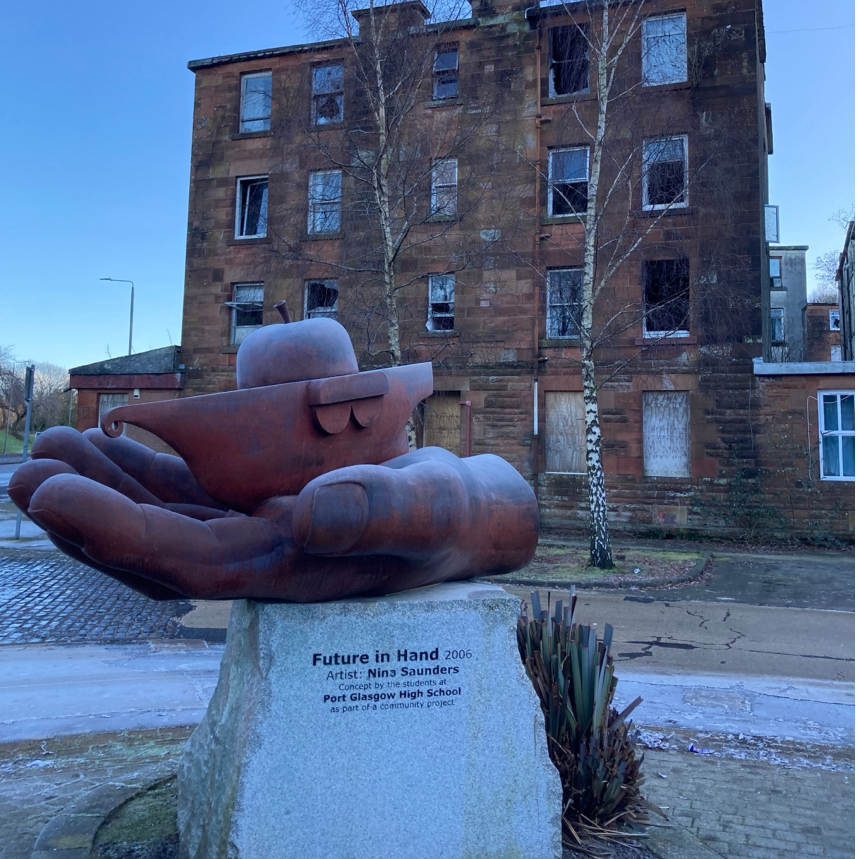

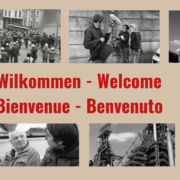

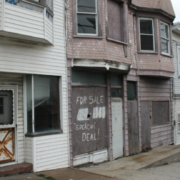 Melissa R. Meade
Melissa R. Meade
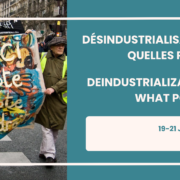
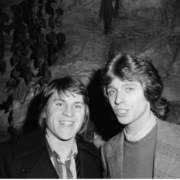
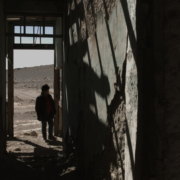 Figure 1. Buenaventura, Ollagüe, Chile. © Alto Cielo Archaeological Project
Figure 1. Buenaventura, Ollagüe, Chile. © Alto Cielo Archaeological Project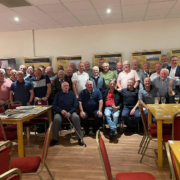
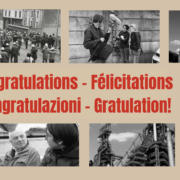
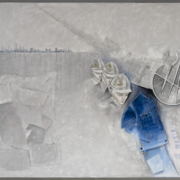
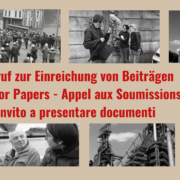
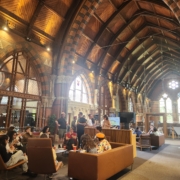
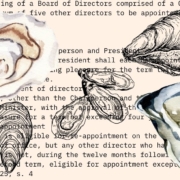
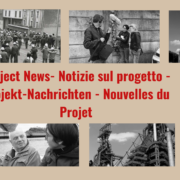
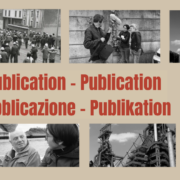

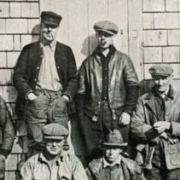 Cindy Follett Guldemond (Stonington: Fowler Road Press, 2012).
Cindy Follett Guldemond (Stonington: Fowler Road Press, 2012).
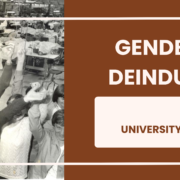
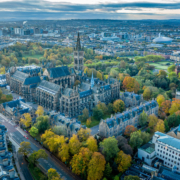
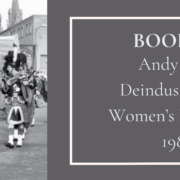
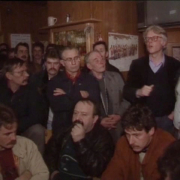 Photo: Alusuisse workers meet in Steg, January 1993 (Schweizer Fernsehen DRS, 27.1.1993
Photo: Alusuisse workers meet in Steg, January 1993 (Schweizer Fernsehen DRS, 27.1.1993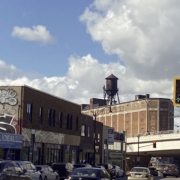
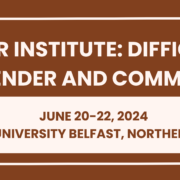
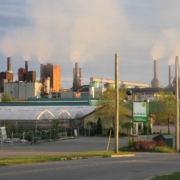 Bouchecl, Wikimédia, Creative Commons Attribution-Share Alike license
Bouchecl, Wikimédia, Creative Commons Attribution-Share Alike license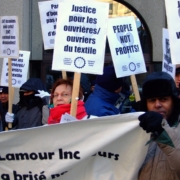 Tatiana Gomez
Tatiana Gomez
